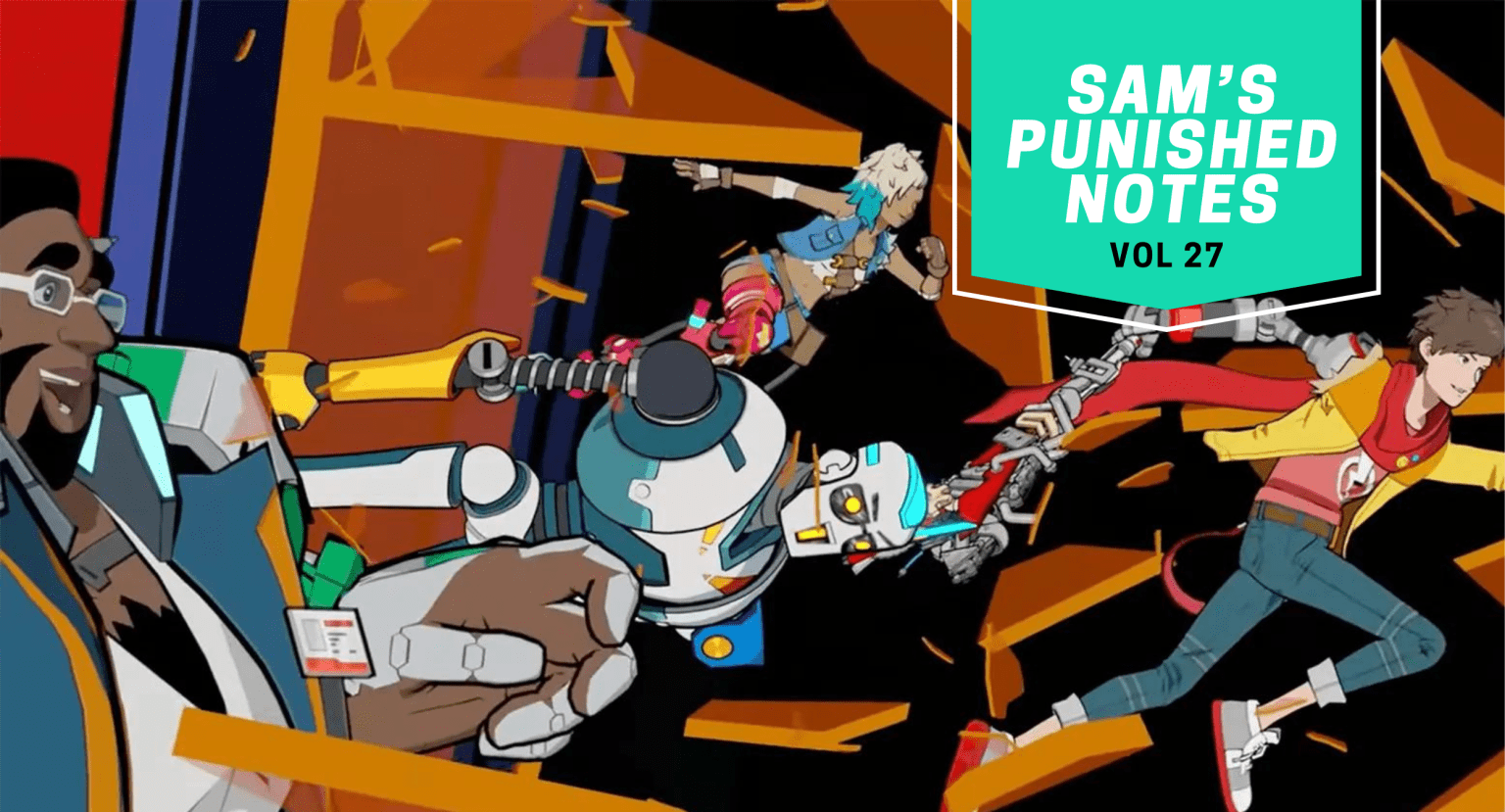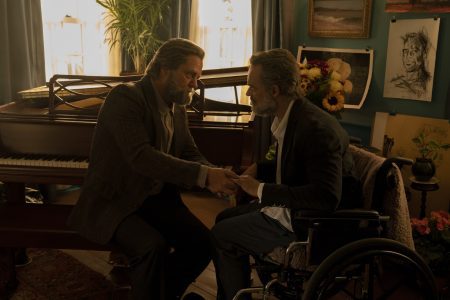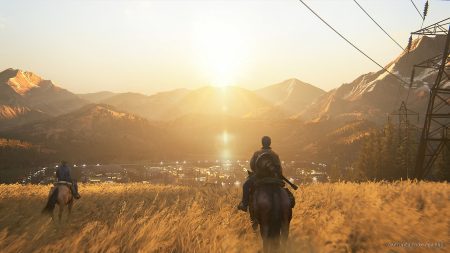Welcome back to Punished Notes! In this 27th edition, I’ll discuss (in lightning round fashion) Xbox’s latest hit, a classic from the Nintendo 64 era, a delightful indie RPG, and more. Plus, I’ll give you my thoughts on the latest HBO hit show everybody’s talking about. As always, thanks for reading!
SUPER LIGHTNING ROUND!!!!!!!!!!!!!!!!!!!!!!!!!!!
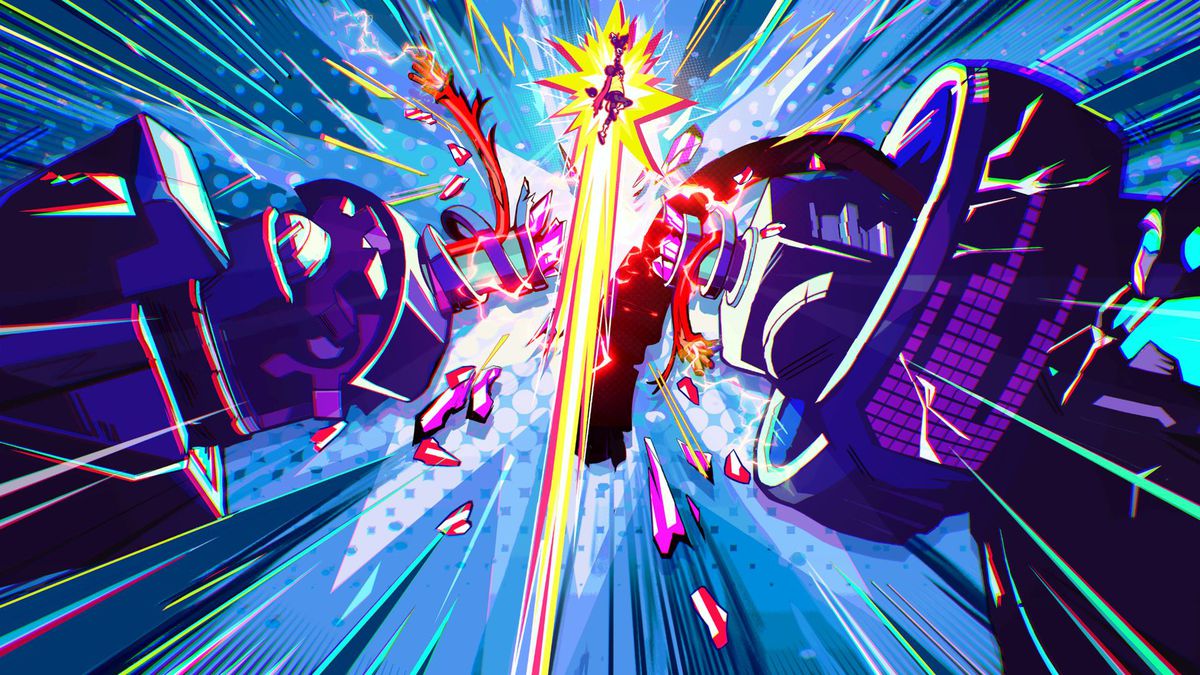
Hi-Fi Rush Notes
–Hi-Fi Rush, the latest from studio Tango Gameworks, was shadow-dropped late last month, and it’s exactly the kind of side project I love to see from high-profile AAA developers. This rhythm-based action platformer combines the art-style and comedic sense of classic Saturday Morning Cartoons with the vibes of a GameCube/Dreamcast-era game, and I say that in the most complimentary way imaginable. Every moment of this title drips with vivacity, humor, and blood-pumping action, and I love that a team known mostly for horror has tried its hand at something more light-hearted and upbeat.
-The best part of Hi-Fi Rush? Unlike many of its AAA brethren, it only takes minutes to largely understand how the game works, with combat mechanics that are easy to learn (and difficult to master) and level design that clearly outlines what you can do and where you can go. The game achieves near-perfect legibility in its world architecture and systems, and the dynamic nature of the combat presents each encounter as though it were a canvas for the player’s preferred play style. Additionally, Hi-Fi Rush’s gameplay is phenomenally well-paced, and the later battles feel ever-so-satisfying once the player fully understands all the mechanical nuances.
-I’m not sure I love a lot of the actual music in Hi-Fi Rush that much, but I adore the way the music is integrated into every action, including attacks, dodges, parries, jumps, and even the background aesthetics. I do appreciate that not one, but TWO Nine Inch Nails tracks are used in boss battles.
-The game has a real sense of humor, and that doesn’t just mean it “tells jokes” or “makes references.” It certainly does have jokes and references, but they all feel integral to the overall atmosphere and storytelling. The comedic elements found in dialogue, animations, and background writing connect seamlessly with one another to create a singular vibe that the player experiences throughout every minute of Hi-Fi Rush.
-I don’t want to comment too much on video game industry consolidation, but I appreciate that games like Pentiment and Hi-Fi Rush can even exist under the Xbox umbrella. It makes me wonder what we’d see if people at Rockstar, Ubisoft Montreal, or FromSoftware would do if given the same kind of opportunity.
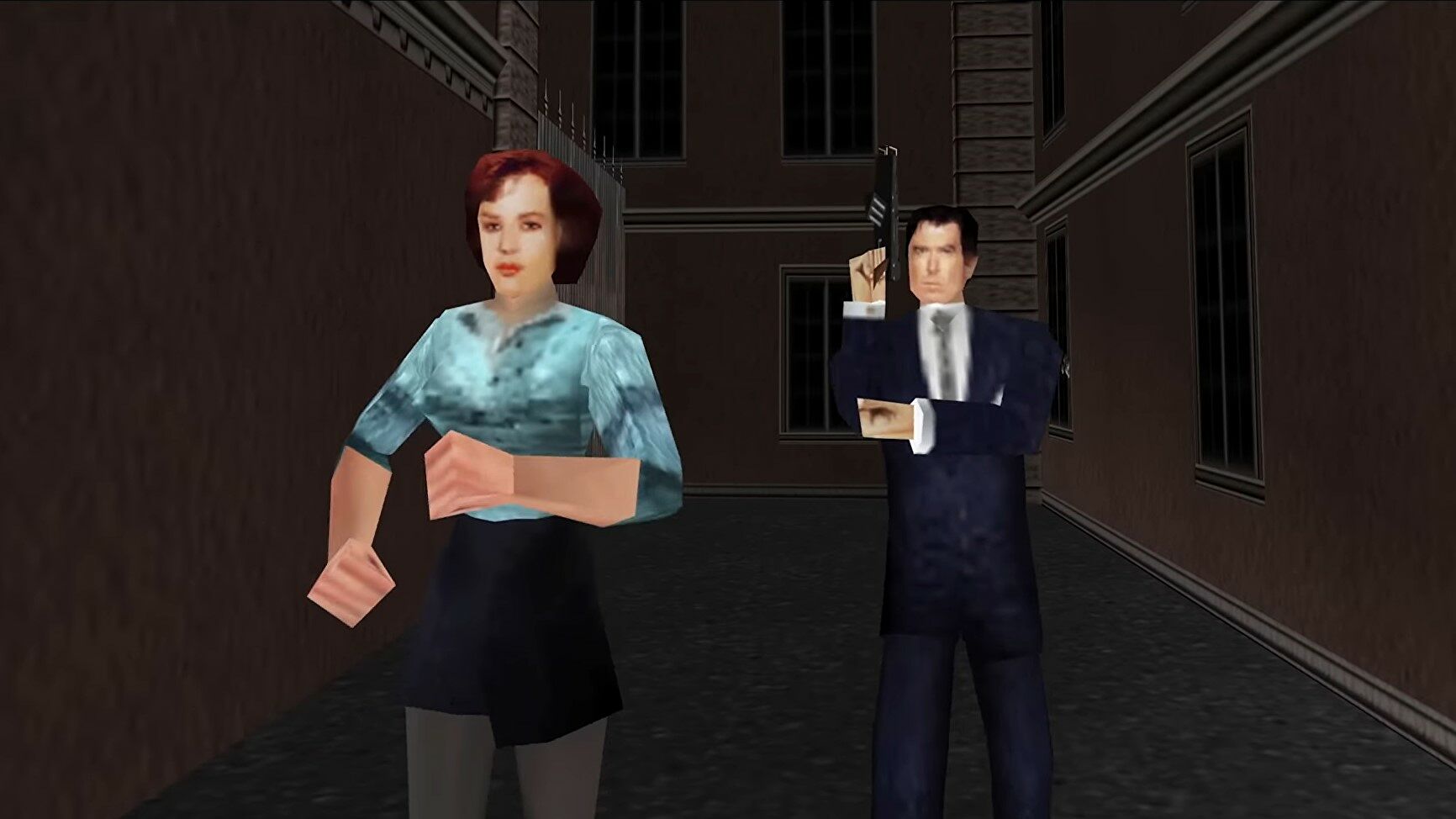
Goldeneye Notes
-I’ve been playing N64 classic Goldeneye on Switch lately, and while I wouldn’t say it “holds up,” I’ve still had a fun time with it. Sure, the controls make no sense at all by modern standards, the character models look nothing like their real-life counterparts, and the at-times bland level design makes certain missions a slog. But the parts of Goldeneye that do hold up after all these years really shine, including the non-linear approach to certain missions, a simplified HUD, great sound design, a fantastic soundtrack, and the game’s approach to difficulty (namely, that higher difficulty levels mean more tasks to accomplish in a mission).
-While the Xbox version has more intuitive and modernized controls, I’ve found that using the control scheme on Switch where you hit the A button to shoot is largely effective. Still, it makes no sense that Nintendo won’t let me easily remap buttons, especially for such a highly regarded title. (For what it’s worth, if you want to play through this game only on one platform, choose Xbox.)
-After revisiting Goldeneye, I’ve concluded that it’s near the top of my list of “you had to be there” experiences—i.e., games that absolutely HAD to be enjoyed around the time of their release in order to be enjoyed at all. It may not seem like it now, but no multiplayer experience now could possibly match crowding around a 12-inch CRT TV to play four-player Golden Gun mode with the paintball and DK mode cheats turned on. Perhaps Sonic Adventure 2 has met its match in this department.
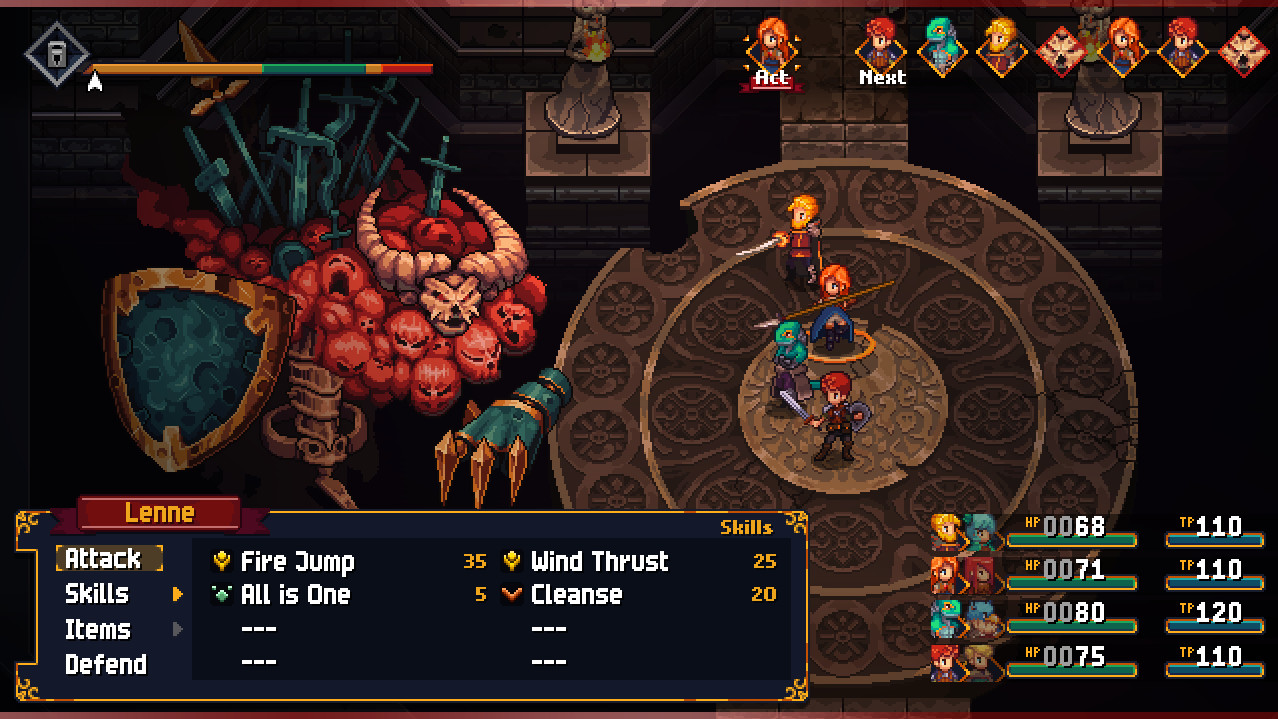
Chained Echoes Notes
–Chained Echoes, a delightful indie RPG from Matthias Linda and publisher Deck13, falls into one of my favorite categories of indie game: a callback to classic titles that builds upon what made those games memorable and removes (and/or improves) everything that makes them difficult to play now. The game clearly takes inspiration from ’90s-era 16-bit JRPGs like Final Fantasy VI and Chrono Trigger, but largely eschews some of the quirks and mechanics that defined that era. Chained Echoes, unlike many of the experiences that influenced its creation, is phenomenally well-paced, offers a unique and streamlined approach to leveling up, and includes an intuitive and varied set of combat mechanics. Pair all that with charming characters and an engaging story, and you have Chained Echoes, which would likely have made my 2022 GOTY Tier List had I played it in time.
-The English-language localization in Chained Echoes isn’t the greatest. Characters sometimes speak as if their lines were written by an AI, even in critical narrative moments. It rarely gets in the way—just something I notice often.
-The best gameplay element of Chained Echoes is the overdrive system, in which actions either raise or lower your overdrive meter. If your squad is within a certain range during a turn, they receive offensive and defensive buffs. However, if you go beyond that threshold, you get debuffs across the board. This system forces the player to get creative with how they approach battles, what moves to use, and when to use abilities like Defend (which I never use in other games) instead of attacking just to balance out the overdrive meter. As a result, every combat encounter in Chained Echoes feels like an adventure of its own instead of a roadblock or a means to an end.
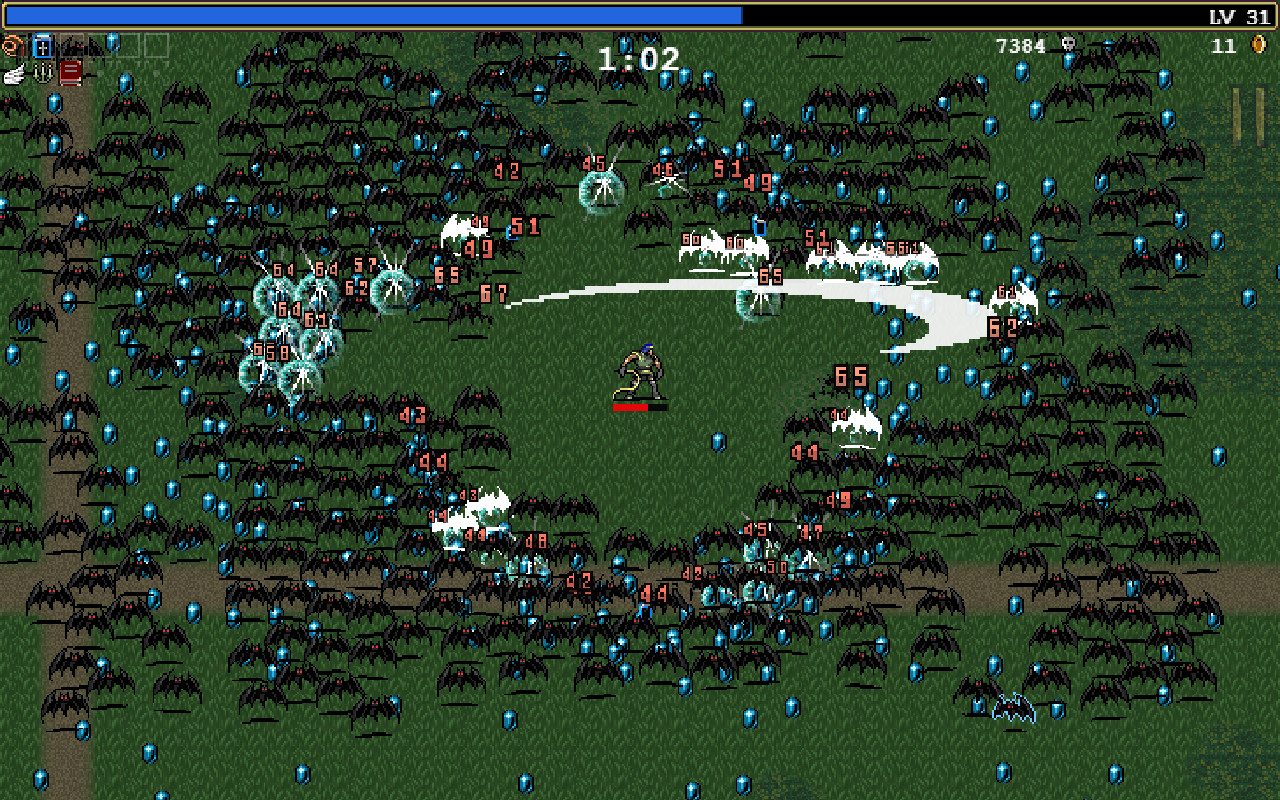
Other Notes
-While I’m terrible at Vampire Survivors and don’t think I can make it much further into the game past the Dairy Plant, the game is a super original and objectively well-made experience that I’d recommend to anyone.
–Captain Toad: Treasure Tracker is a great example of Nintendo taking a clever idea to its logical endpoint. The delightful puzzle game (which I played originally on Wii U but have recently acquired for Switch) is filled with simple but enjoyable puzzles and semi-platforming challenges, yet I’m not sure there’s much more Nintendo can do with the core concept. Don’t expect Treasure Tracker 2 anytime soon.
–Luigi’s Mansion: Dark Moon has a phenomenal gameplay loop and great cutscene animations, but the level-based structure can be tedious at times. It’s overall a great 3DS game, but it pales in comparison to Luigi’s Mansion 3, Dark Moon’s superior in basically every category.
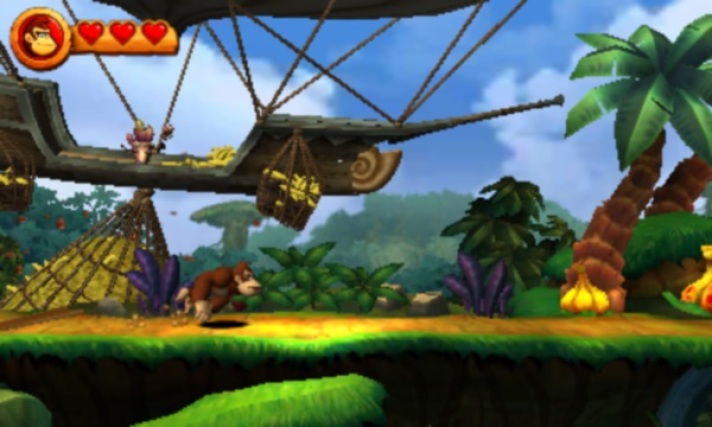
-Speaking of the 3DS, I’m playing the 3DS version of Donkey Kong Country Returns for the first time (I played the game originally on Wii over a decade ago), and I’m having such a great time that I’m actually a little sad about it. Both Returns and the wonderful Tropical Freeze are two of the best platformers Nintendo has done in the past 20 years, yet developer Retro Studios (which is allegedly working on Metroid Prime 4, which allegedly still exists) doesn’t seem like it’ll touch this franchise again, at least not for a very long time. Hopefully another Nintendo studio will take up the DKC mantle, but for now I’ll just enjoy what Returns 3D has to offer.
-Yeah, Forspoken doesn’t look like a very good game, either in terms of gameplay or storytelling. Still, I think a lot of terminally online people got carried away criticizing the writing. Whedonesque writing can be tiresome, but from what I’ve seen, Forspoken is hardly the worst offender out there.
-HBO’s The Last of Us adaptation is one of the most surprisingly good shows I’ve watched in a while. It takes many of the best elements of the original game (slow pace, dark motifs, genuinely heartwarming/heartbreaking relationships) and alters some of the context around them to create a well-rounded, scintillating television experience. Also, without spoilers: “Long, Long Time” is one of my favorite episodes of television of the past year.
Sam has been playing video games since his earliest years and has been writing about them since 2016. He’s a big fan of Nintendo games and complaining about The Last of Us Part II. You either agree wholeheartedly with his opinions or despise them. There is no in between.
A lifelong New Yorker, Sam views gaming as far more than a silly little pastime, and hopes though critical analysis and in-depth reviews to better understand the medium's artistic merit.
Twitter: @sam_martinelli.


